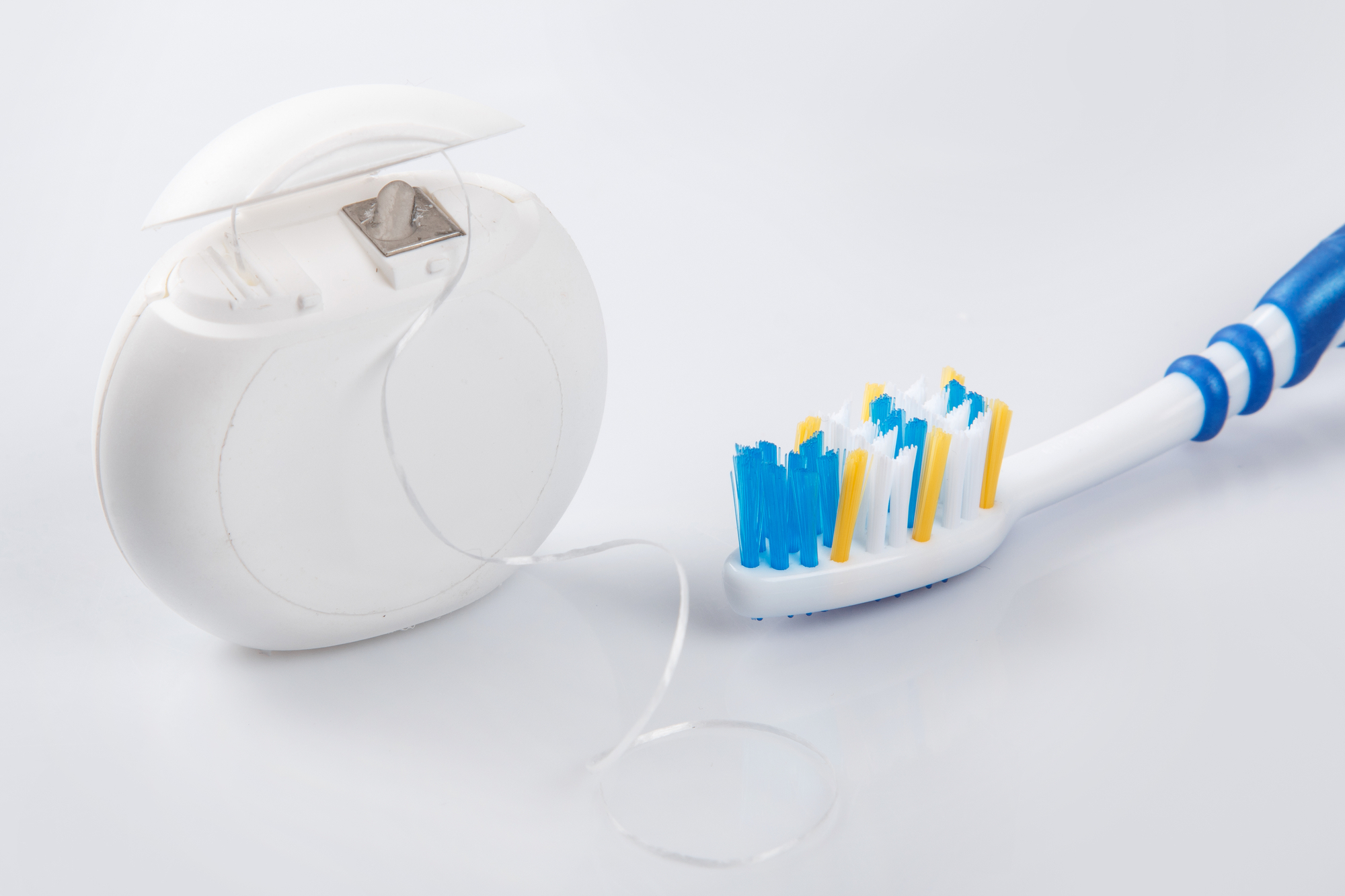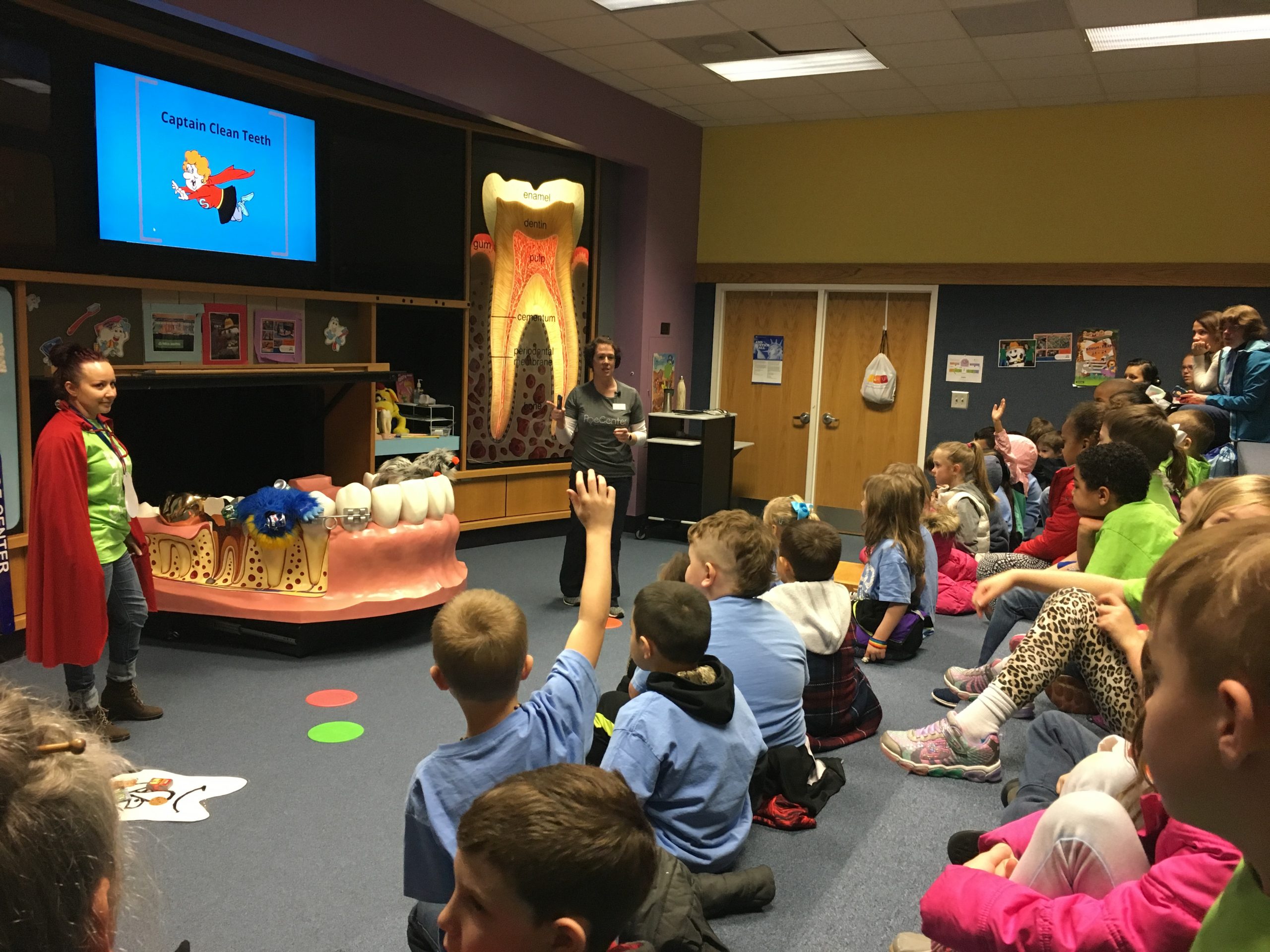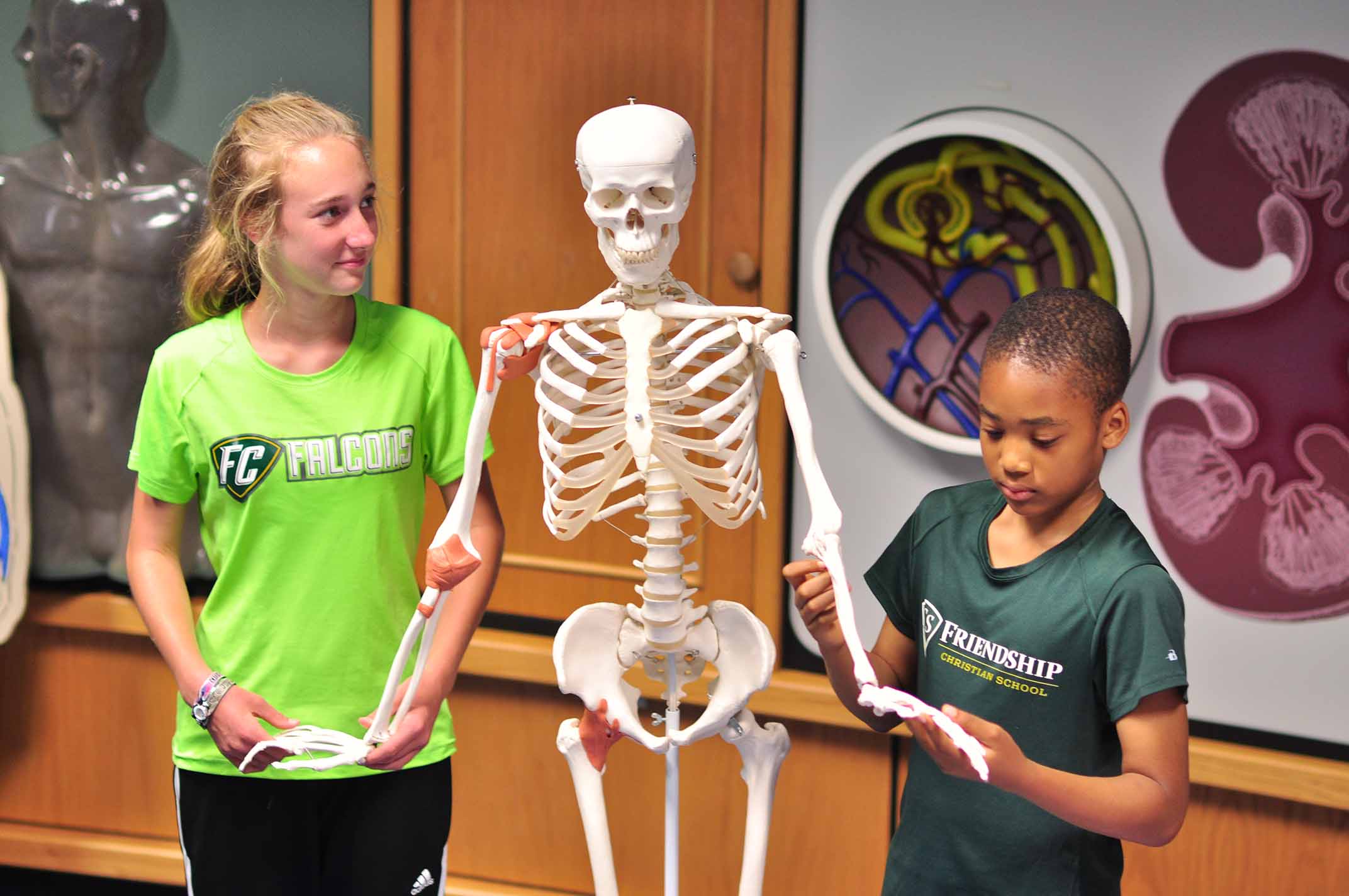
Healthy Smile, Healthy Life: Caring for Teeth at All Ages and Stages
Alaina Hart, MPH, CHES
Senior Health Educator
As we celebrate Children’s Dental Health Month, it’s important to not only focus on the healthy habits we want our kids to practice but also highlight the common dental-health concerns and proper care adults should focus on throughout life. The World Health Organization (WHO) states “Oral diseases are the most common noncommunicable diseases (NCDs) that affect people throughout their lifetime.” Following these tips can help keep your teeth healthy and strong throughout your entire life.
Baby Teeth
A common question asked about baby teeth is “why are they so important to take care of when they are just going to fall out?” Here’s the answer. Baby teeth are an important part of children’s development in learning to chew, talk, and smile. They also hold a place for permanent teeth to come in later. If baby teeth aren’t cared for properly, they can cause issues such as crowding, or crooked permanent teeth.
Tips for care:

- Regular dental habits should start even before teeth push through the gums by wiping the baby’s mouth and gums with a clean washcloth.
- Once teeth have come through the gums, children’s teeth should be brushed twice daily with a small amount of fluoride toothpaste no larger than a grain of rice or small smear.
- Children over two should continue brushing habits twice a day using a pea-size amount of fluoride toothpaste.
- According to the American Dental Association (ADA), babies should visit the dentist no later than their first birthday. The dentist will not only check for cavities but they will also show you how to take care of baby’s teeth.
- After a child’s first birthday, regular dentist visits every 6 months should begin.
- When your child has two teeth that touch one another, it is important to start cleaning between teeth.
Kids and Teens:
As permanent teeth are starting to make an appearance, this is a great time to introduce new dental hygiene skills and reinforce good dental health habits.
Tips for care:
- Watch children brush their teeth, especially those under six, to make sure they are cleaning all tooth surfaces and not swallowing toothpaste.
- New skills such as flossing and using mouthwash can be introduced.
- Make sure children take the time to thoroughly clean orthodontic devices, such as braces and retainers, well.
- Choose tap water from reliable safe sources when possible. Most tap water contains fluoride which helps prevent cavities and tooth decay.
- Continue guiding children towards healthier food and beverage choices which helps establish good oral health habits as they get older.
Adults:
With age, it becomes more important to take extra care of your teeth and oral health needs. A common myth is that losing your teeth is a normal part of aging. That is not so! If you continue to care for your teeth, they can last a lifetime. Although adults today tend to keep their teeth longer than previous generations, dental problems can still occur. Chronic diseases and physical limitations threaten oral health with tooth loss and decay.
Tips for care:
- Maintain healthy habits by brushing and flossing daily.
- Stay hydrated by choosing to drink water over sugar-sweetened drinks.
- Avoid tobacco products and limit alcohol use.
- Visit the dentist regularly for a complete check-up, even if you have dentures.
- Thoroughly clean partial or full dentures daily.
- Some medications can affect your dental health. Talk to your doctor about treatment options.
- If you have a chronic disease, such as diabetes, work to maintain control of it. This will also help decrease risks for other complications.
Pregnant Women:
There are so many things that parents-to-be have to think about before the baby comes, and oftentimes visiting the dentist gets left off the list. So, can you visit the dentist when you’re pregnant? Yes, it is safe and important to keep up with your regular dental check-ups during pregnancy. Not everyone may experience issues, but pregnancy can create some new mouth issues or make existing ones worse. Your dentist can help to answer all of those concerns.

Tips for care:
- Let your doctor know that you are pregnant or may be pregnant when you make your appointments.
- Brush and floss daily. You can pass on germs to your baby that could cause cavities when their teeth come in.
- Try to eat a balanced diet.
- If you are experiencing morning sickness often, try rinsing your mouth with a teaspoon of baking soda mixed with water to help prevent stomach acid from harming your teeth.
Overall, your best defenses for fighting dental health issues are brushing and flossing daily and regular visits to the dentist. It can sometimes be easier said than done, especially with all the other things we have to focus on. However, we know that the health of our mouth can affect the health of the rest of our body, so it’s important to make dental health and hygiene a priority.
Resources:
A healthy smile can last a lifetime
Oral Care Tips for the whole family
Featured Poe Program: Super Smiles

Grade Level: Kindergarten-1st grade
Program Length: 45 minutes
An exciting visit with Mr. Big Mouth teaches students the importance of proper brushing and flossing. Students play “Move It and Lose It” to demonstrate the exchange of primary teeth for permanent teeth. Annie and Moby™ take them on a visit to the dentist and special guest Captain Clean-Teeth helps them leave this fun program with… Super Smiles!
The Poe Center offers a variety of dental health programs. Call 919-231-4006 or go online to plan a program.
Teacher Activity: What’s in Your Bones?
Grade Level: 5th-8th
Materials: 
- 2 clear mason jars with lids
- 2 clean, cooked chicken wing bones with meat and cartilage removed
- Milk
- Vinegar
- Pins
1. Have students examine bones before they are placed in jars. Poke the bones with straight pins to test how hard the bones are. Instruct students to record results.
2. Place one chicken bone in a jar and cover it with milk. Place the other chicken bone in second jar and cover with vinegar. Cover both with lids and let soak overnight.
3. Each day for 7 days, replace milk in jar so it does not spoil.
4. After one week, take the bones from each jar and rinse them off. Allow students to test bones again by pricking with pins and bendings.
5. Record results. Which bone was stronger in the end? Discuss how the bone soaked in vinegar was weaker. Vinegar is an acid that pulls calcium from the bone. Sodas contain a type of acid called phosphoric acid, which can prevent your body from getting enough calcium if you choose soda over calcium-rich foods.
